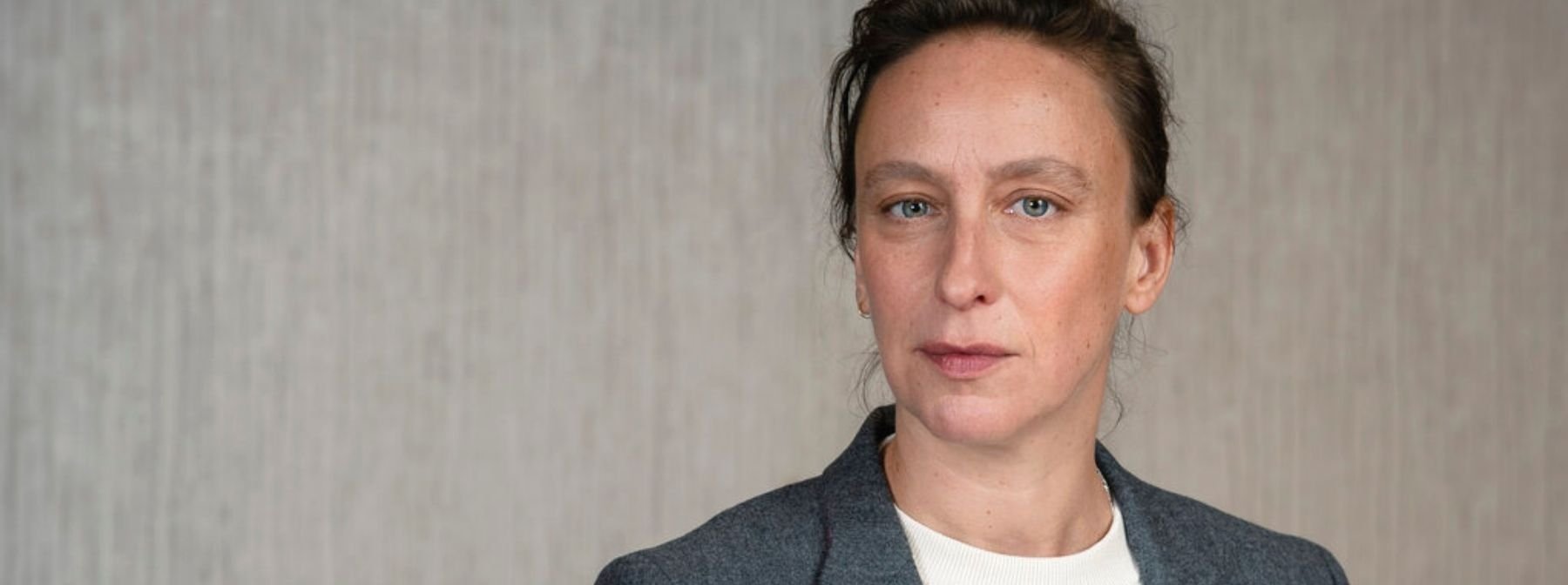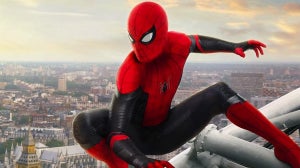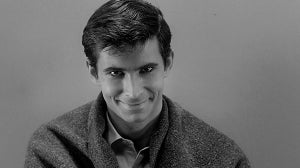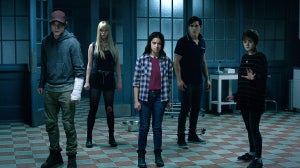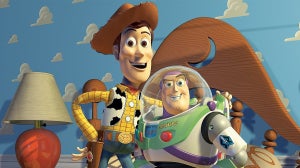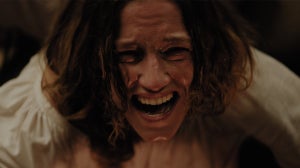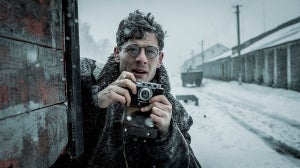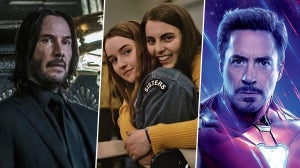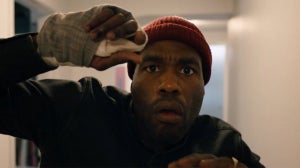
The French director had made three very different coming-of-age stories, and written the screenplay for another (the Oscar nominated animation My Life As A Courgette), but it was her tragic period romance that made the world finally sit up and take notice.
And now the world’s paying attention, she’s returned with another beautifully realised tale of childhood, which is quietly her most ambitious film to date.
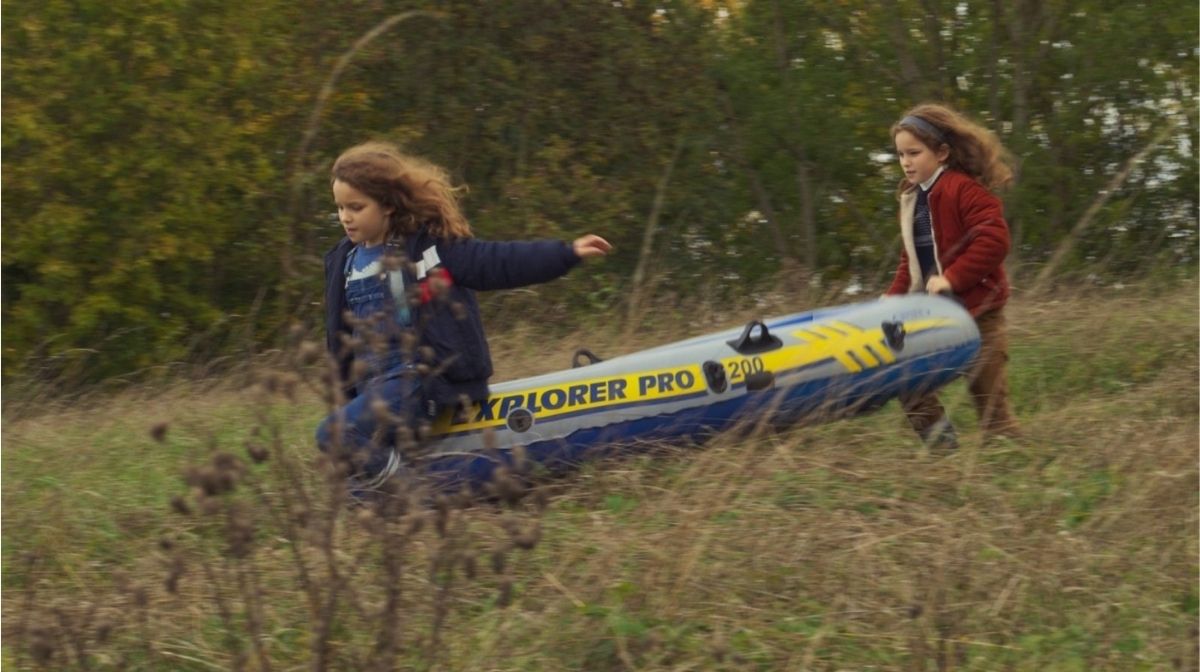
Petite Maman follows Nelly (Joséphine Sanz), a young girl who is helping her parents clean out her grandmother’s house shortly after her passing. When playing in the woods outside, she meets Marion (Gabrielle Sanz), and the pair immediately become friends.
However, Nelly soon realises there's something familiar about Marion - this is her mother at a young age, and she’s been transported back in time to meet her.
It’s a simple, affecting story, told in a compact 72 minutes but with an emotional impact that will last much longer. But for the director, the idea of telling a time travel story made this more of a challenge than may meet the eye.
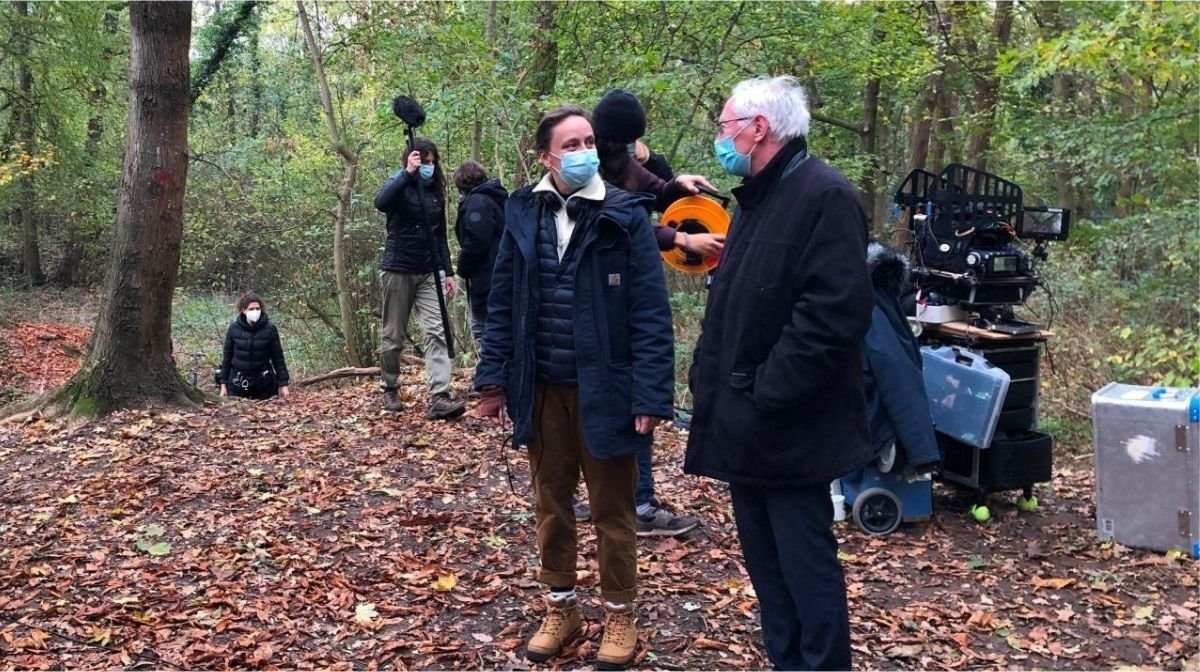
“It wasn’t until I finished writing the first draft that I had the dawning realisation I’d written a time travel movie”, she told Zavvi. “And that was daunting at first - there are so many rules to be established within this genre, and there are movies I love like Back To The Future which do that so well.”
The key to cracking the film was realising that time travel films operate as “tourist pieces”, designed to transport the viewer to a different era. But Sciamma didn’t want to be tied down to a specific period.
“I knew that I wanted the film to feel timeless; this could be a child from the ‘50s or a child from today experiencing this. Time travel is an opportunity to share a common space in time, and when it’s not set in a defined period, it really gives a chance to explore the deeper relationships within the story.”
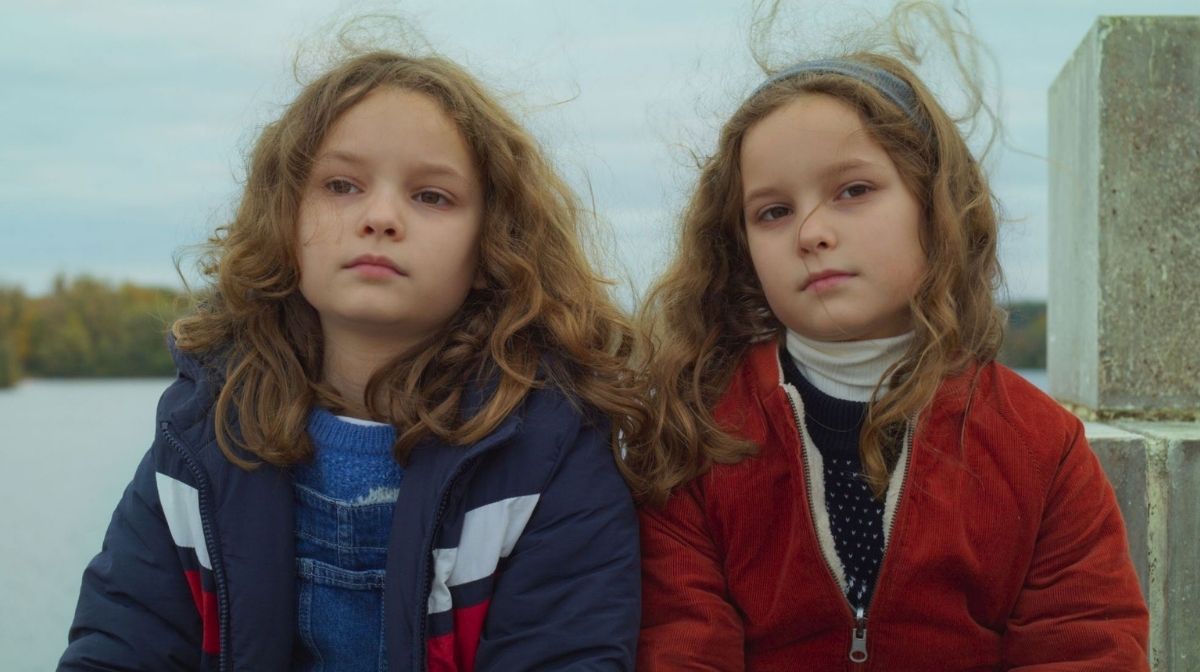
To keep things focused on the characters, there’s no TARDIS or Flux Capacitor anywhere in sight.
“I made the decision not to include any time travel machine. The film is the time travel machine, it’s the thing that transports us - and that’s been the case since the birth of cinema and magical realism. It’s really a celebration of the way we respond to films.
“All my films are timeless; even when I was shooting a movie set in the 18th century, which I tried to make as historically accurate as possible, I still approached it with the attitude that people are watching this in 2019.
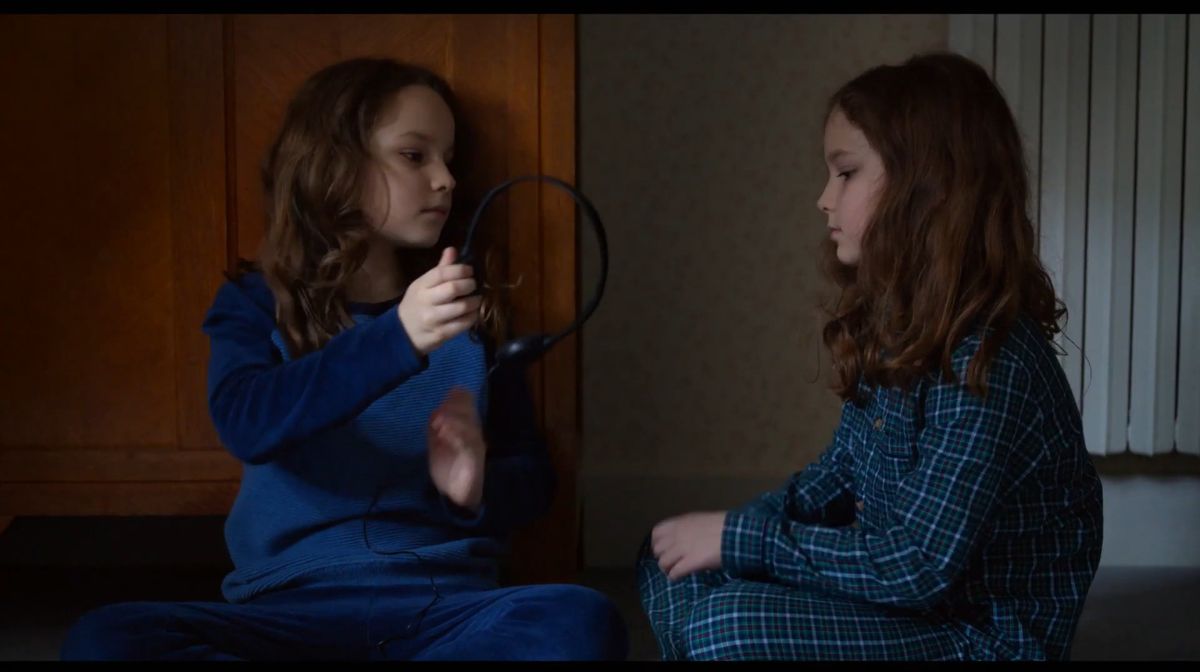
"I want my films to speak to modern young audiences - I want them to leave feeling like they’ve experienced cinema.”
Whilst writing, Sciamma felt that Petite Maman “could be an anime”, and was heavily influenced by the iconic directors Hayao Miyazaki and Mamoru Hosoda: “I was really connected to their perception of childhood.
"When you watch a Miyazaki film, you’re not thinking of it as a ‘kids film’, it’s a story for everyone; there’s an ambition to create a truly democratic cinema, a story that will challenge and excite both children and adults.
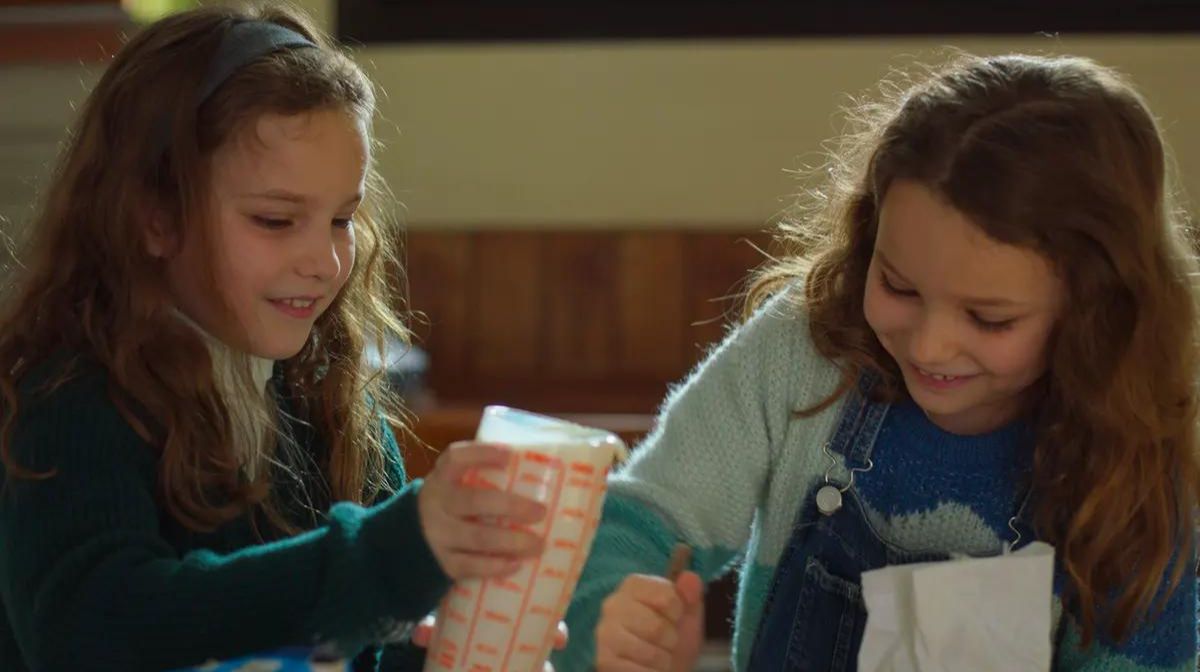
"His films fully respect young audiences, and the difficulties of childhood, so when I had problems with this movie, I was always thinking about how he would have tackled them. He’s a director who takes young characters seriously, and that’s something I deeply respect about him as a filmmaker”.
Another challenge was finding the perfect young actors for the lead roles, with the film marking the debut screen performance of sisters Joséphine and Gabrielle Sanz. Sciamma knew they were right for the roles “as soon as (I) saw them walking towards me”, with the film quickly taking shape soon after they climbed on board.
But there was a big challenge overshadowing the entire production: making a timeless film, while Covid restrictions ensured everybody on set had to have one foot firmly set in the present.
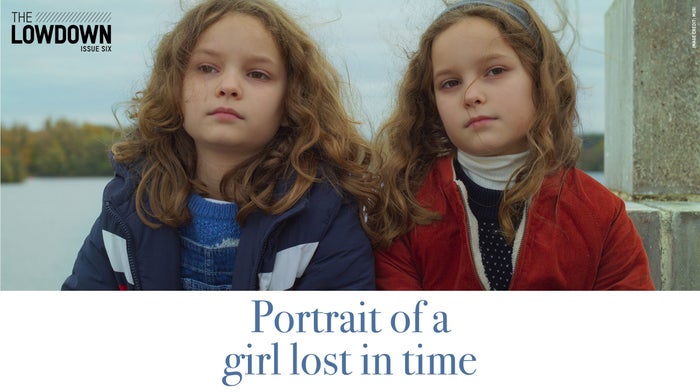
“The film was very pandemic compatible in a way - we shot in a studio with very few actors, and we rarely had more than two actors at the same time, so it was a highly economical way of not just telling a story, but of shooting alongside the restrictions”, Sciamma explained.
“We shot during the second lockdown in France, but in a way, shooting a film is always like working in a lockdown. Making a film with these restrictions is interesting, because you’re shooting in a bubble, but you want to make sure the story can connect with the world outside of it.
“I’ve made films with many young actors before, but this time, there was something really special about seeing these kids take off their masks to enter this world just before we shot each scene.”
Get ready to get transported when Petite Maman arrives on Friday 19th November.
For more of the latest interviews and features, follow us on Facebook, Instagram, Twitter and TikTok.

